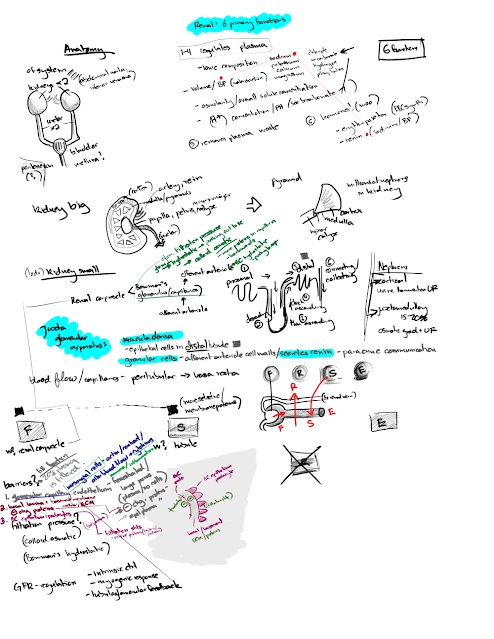Concept Maps
Do you enjoy spending hours in the library, sipping drip coffee into the early morning and taking short walks every hour? If so, you can probably achieve your academic goals using any note-taking strategy. On the other hand, if you find studying for courses tedious, then I recommend you toss your existing note-taking approach out the window and utilize concept maps instead.
When I was applying for research tech positions, I circled terms, connecting them with labeled lines. After a couple of rereads and sometimes a nap, I found I was able to prepare intelligible commentaries on any topic, including neoplastic transformations, cell physiology, and the biophysics of lipid-lipid phase separation.
In the top image, you can see the kind of note-taking that I did back in college. These notes look very pretty, and they support two conclusions: 1) I had access to excellent coffee and 2) I read the chapter from front to back exactly once.
On the bottom you see my current concept-map based approach. It looks messy, but has two advantages: First, it encourages actively revising the notes, in order to form new connections interacting with the terms in the chapter. Also, it prevents you from passively regurgitating the same term in different contexts, which is horribly inefficient and basically the same thing as not learning anything at all.
By using concept maps, I was able to make a good grade in my six-week accelerated A&P course, and it didn’t consume my life. By studying smarter, I was able to work full-time, and I also had time to play sports, which was extremely important to me.
Whether or not you find your coursework challenging, effective study habits can give you confidence and help you achieve self-actualization. It's also important to have an effective support system, but that’s a topic for another post!
 |
| Above: ☝ Fancy, inefficient notes. Below: Concept mapping!😎 |

Comments
Post a Comment